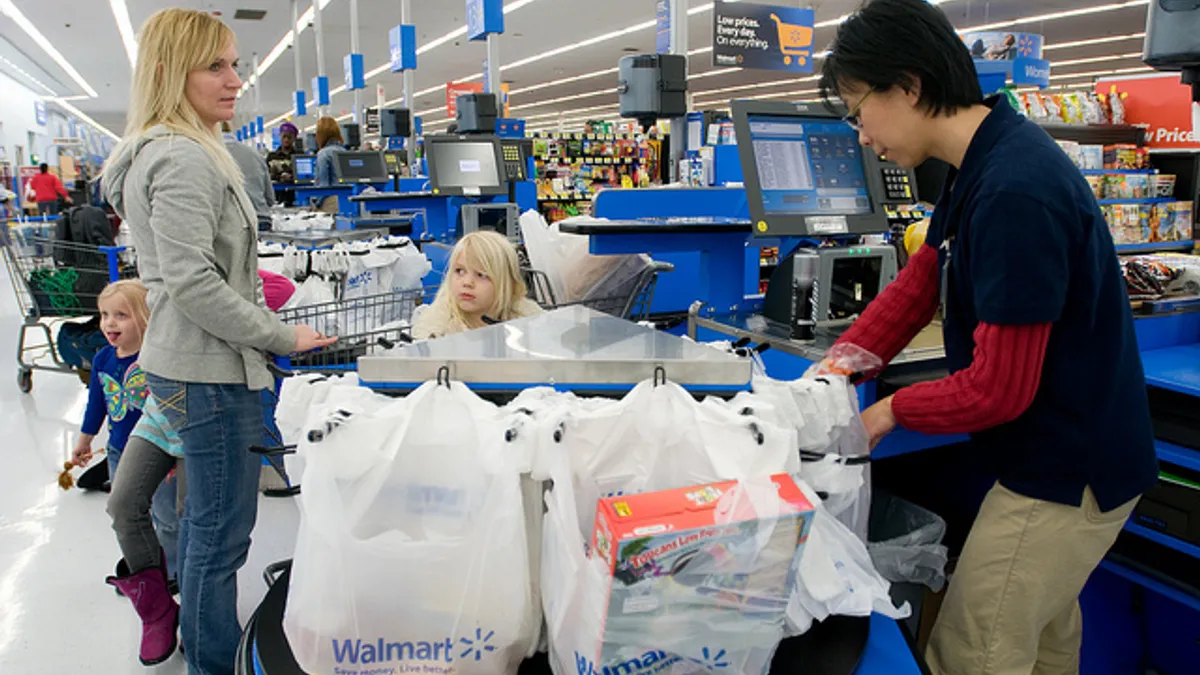Dive Brief:
- Beginning Feb. 1, Chicago will institute a tax of 7 cents per bag tax to encourage shoppers to bring their own when shopping, according to the Chicago Tribune.
- While retailers make the decision on whether they absorb the cost or pass it on to their customers, Walgreens, Jewel-Osco, Whole Foods Market, Mariano’s, Target, CVS, PetSmart and T.J. Maxx have all said that their customers will have to pay for bags.
- Some stores will be providing free reusable bags to help during the transition. The city will be handing out 25,000 reusable “ChiBags” outside seven "L" stations around the city on Wednesday evening.
Dive Insight:
Chicago will join a long list of cities adopting bag taxes, including Washington D.C.; Austin, TX; Boulder, CO; Portland, ME and New York.
While people may see a bag tax as an inconvenience, its goal is to help the environment, which many shoppers say they care about. When people use the reusable bags, it helps mitigate harmful impacts through pollution to oceans, rivers, lakes, forests and the wildlife that inhabit them, according to the National Conference of State Legislators. Reducing bags also relieves pressure on landfills and waste management.
Analysts say that the disposable bag taxes have effectively reduced the amount of bags in use with little impact on overall sales. Sure, there may be grumbling, but the small inconvenience doesn’t seem to be enough to drive people to online shopping yet.
Two early studies on bag taxes did show some problems that could result. A 2012 study by the National Center for Policy Analysis looking at the effects of a bag ban in Los Angeles County found that because consumers changed their normal patterns to shop at stores that still offered free plastic bags, employment at stores that charged for them decreased by 10%. Another study conducted by the International Association for Food Protection found reusable bags could harbor bacteria because people rarely wash them.








